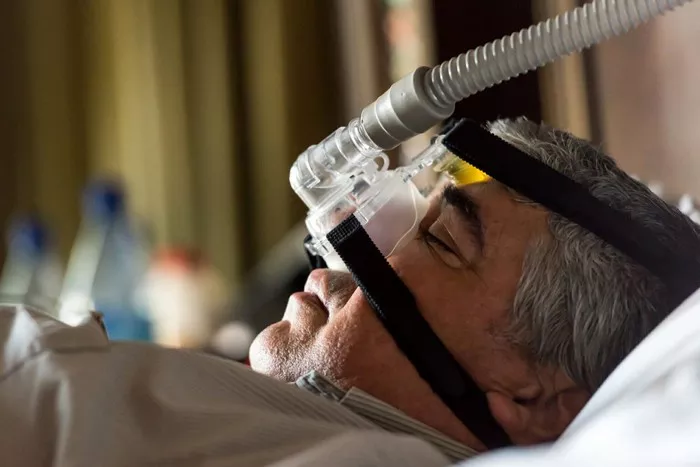Sleep apnea and atrial fibrillation are two common health conditions that can have a significant impact on an individual’s well-being. While they may seem unrelated at first glance, there is a growing body of evidence suggesting a strong link between sleep apnea and atrial fibrillation. In this article, we will explore the mechanisms behind this connection and understand why sleep apnea can cause atrial fibrillation.
Sleep apnea is a sleep disorder characterized by pauses in breathing or shallow breaths during sleep. These pauses, known as apneas or hypopneas, can occur multiple times throughout the night and disrupt the normal sleep cycle. Atrial fibrillation, on the other hand, is a heart rhythm disorder characterized by irregular and often rapid heartbeats. While these conditions may seem unrelated, research has shown that there is a complex interplay between sleep apnea and atrial fibrillation.
The Role of Sleep Apnea in Atrial Fibrillation
Impact on Autonomic Nervous System: One of the key mechanisms linking sleep apnea to atrial fibrillation is the impact on the autonomic nervous system. During episodes of apnea, the body experiences periods of hypoxia (low oxygen levels) and hypercapnia (high carbon dioxide levels). These fluctuations can lead to sympathetic nervous system activation and increased catecholamine release, which in turn can trigger atrial fibrillation episodes.
1. Inflammation and Oxidative Stress: Sleep apnea is also associated with chronic inflammation and oxidative stress. The intermittent hypoxia-reoxygenation cycles experienced during apneic events can lead to the release of pro-inflammatory cytokines and reactive oxygen species. These inflammatory and oxidative processes can promote atrial remodeling and fibrosis, contributing to the development of atrial fibrillation.
2. Sleep Disruption and Sympathetic Overactivity: The repetitive arousals and sleep fragmentation seen in individuals with sleep apnea can contribute to sympathetic overactivity. Elevated sympathetic tone is known to promote arrhythmias, including atrial fibrillation. Additionally, fragmented sleep patterns can disrupt the normal circadian rhythm of the heart, further increasing the risk of arrhythmias.
3. Hemodynamic Changes: Sleep apnea is often associated with fluctuations in blood pressure, particularly during apneic episodes. The sudden increases in blood pressure following apnea-induced hypoxia can impose hemodynamic stress on the heart, leading to atrial stretch and electrical remodeling. These changes create a substrate conducive to atrial fibrillation initiation and maintenance.
4. Obesity and Metabolic Factors: There is a strong correlation between obesity, metabolic syndrome, and both sleep apnea and atrial fibrillation. Excess adipose tissue, especially in the upper airway and visceral areas, can contribute to airway collapse during sleep, exacerbating apnea episodes. Obesity is also linked to insulin resistance, dyslipidemia, and systemic inflammation, all of which can promote atrial fibrillation through various pathways.
Clinical Implications and Management Strategies
The association between sleep apnea and atrial fibrillation has important clinical implications. Recognizing and treating sleep apnea in patients with atrial fibrillation can potentially improve arrhythmia control and reduce the risk of recurrence. Conversely, managing atrial fibrillation may also benefit from addressing underlying sleep apnea.
1. Diagnostic Approaches: Screening for sleep apnea should be considered in patients with atrial fibrillation, especially those with risk factors such as obesity, snoring, and daytime sleepiness. Polysomnography (overnight sleep study) remains the gold standard for diagnosing sleep apnea, although home sleep apnea testing may be appropriate in certain cases.
2. Treatment Strategies: Continuous positive airway pressure (CPAP) therapy is the primary treatment for obstructive sleep apnea. By providing a steady flow of air through a mask during sleep, CPAP helps maintain airway patency and prevents apneic episodes. Studies have shown that CPAP therapy can reduce the frequency and severity of atrial fibrillation episodes in patients with concomitant sleep apnea.
3. Lifestyle Modifications: In addition to CPAP therapy, lifestyle modifications such as weight loss, regular exercise, and avoidance of alcohol and tobacco can also play a role in managing both sleep apnea and atrial fibrillation. These interventions target common risk factors and promote overall cardiovascular health.
4. Collaborative Care: Given the complex interplay between sleep apnea and atrial fibrillation, a multidisciplinary approach involving cardiologists, sleep medicine specialists, and other healthcare professionals is often beneficial. Collaborative care allows for comprehensive assessment, personalized treatment plans, and ongoing monitoring of patients’ progress.
Conclusion
The link between sleep apnea and atrial fibrillation is multifactorial, involving autonomic dysregulation, inflammation, sympathetic overactivity, hemodynamic changes, and metabolic factors. Recognizing and addressing sleep apnea in patients with atrial fibrillation is essential for optimizing arrhythmia management and improving cardiovascular outcomes. Through a combination of diagnostic strategies, treatment modalities, lifestyle modifications, and collaborative care, healthcare providers can effectively address the complex relationship between these two conditions and enhance patient well-being.


